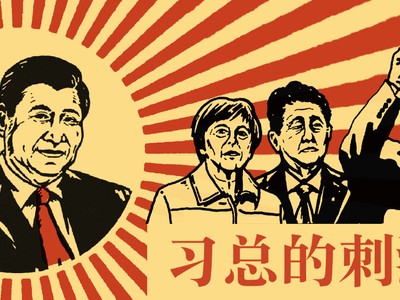Leaving the EU but then giving up sovereignty, immigration control and being compelled to part-fund the EU in order to trade with it could amount to little practical change and a great deal of fuss and hard work. But that is what our Remain-orientated MPs might covertly insist upon as a condition for granting Mrs May statutory permission to invoke Article 50; if that is what the Judiciary force upon our nation.
But if the Government’s appeal to the Supreme Court succeeds and an unfettered Mrs May plays hard ball then we might end up with the EU just imposing tariffs in a mutually destructive standoff.
How Europe deals with the UK in this case will be driven by the degree to which EU leaders perceive that the UK’s exit might encourage others. If the EU thinks others might be encouraged by an easy exit for the UK, then Europe may well cut off its nose to spite its face and impose trade barriers with the UK pour décourager les autres.
Assuming the EU don’t want to punish the UK, then replicating an existing format is seen as an easy solution. From the softest and least likely to irritate the EU first, they are discussed as follows:
1. We could leave the EU and join the European Economic Area (EEA), like Norway. The EEA enshrines the free movement of persons, goods, services and capital within the Single Market. The free movement of persons fails on the immigration front; which was one of the drivers of Brexit. Having to adopt large parts of EU legislation rather fails the sovereignty aspiration of Brexit; as does participating in EEA Grants which fails the “stopping payments to Brussels” wish.
2. Another alternative is that the UK joins the European Free Trade Association (EFTA) which is how the Swiss operate. That fails the sovereignty test because the UK would have to sign up to the EFTA Court which is part of the European Court of Justice (ECJ). But it would allow the UK to make its own bilateral trade agreements. Another problem is that it appears that Norway would block the UK re-joining.
3. The Turks deal with Europe with a 1995 Customs Union that covers industrial goods and common tariffs, but excludes agriculture and services. Copying this agreement would not do much for London exporting financial services and might irritate those who want the UK to make its own trade agreements.
4. Some point to Canada and the CETA (Comprehensive Economic and Trade Agreement) which gets rid of 98% of EU / Canadian tariffs along with contentious visa-free travel for EU nationals.
5. The fifth option is the World Trade Organisation (WTO). WTO provides framework agreements and a resolution process. To my knowledge there are no significant tariff structures in place which would inhibit the UK from trading with any major nation in a post Brexit world.
I am biased towards a conclusion that has Mrs May being given authority to invoke Article 50 and then the UK securing a soft Brexit looking like options 1 and 2 above; which should save us from any domestic bond market routs.
John Royden, Head of Research
_1.jpg)

